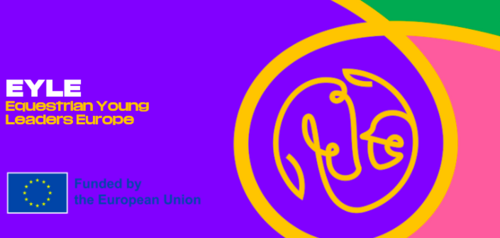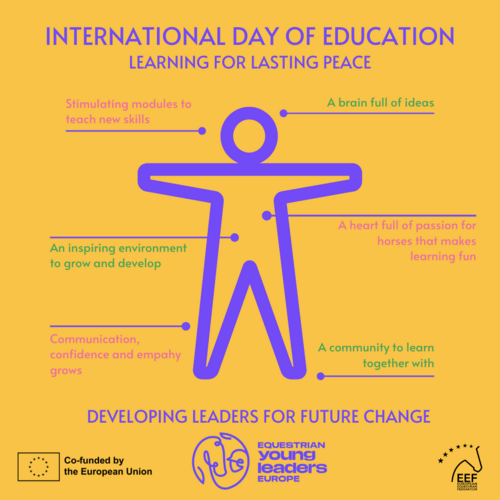International Day of Education: EYLE
23. Jan 2024 / Category: News
Today marks the sixth annual United Nations International Day of Education, celebrating the role education plays in peace and development.
The theme of this year's day is “learning for lasting peace”. The world is seeing a surge of violent conflicts alongside a rise of discrimination, racism, xenophobia, and hate speech. The impact of this violence transcends any boundary and is having a devastating impact. “Learning for peace” must be transformative, and help empower learners with the necessary knowledge, values, attitudes, skills, and behaviours to become agents of peace in their communities.
In this sense, education is not only the traditional role of schools and teachers sharing standard subjects but any opportunity we have to imprint onto the younger generations and enable them to develop their social development skills. These skills are essential to developing the values and behaviours that are imperative to being a conscientious leader for peace.
Within the equine world, our riding schools and centres play a huge role in many young peoples’ education. They are learning a practical skill, while simultaneously developing multiple key social development skills such as communication, confidence, empathy and communication.
The EEF, in conjunction with the Swedish and Dutch equestrian federations, has developed the Equestrian Young Leaders Europe programme to provide a structured approach to exactly this and allow riding schools to run sessions that target the education and development of these skills and behaviours.
The link between sport and its ability to aid learning has been a topic of strong research. Longitudinal research has found sport participation is related to feelings of social competence and this relationship increases across late childhood into early adolescence1. In a review of multiple studies, it has been found that community participation can enhance psychological and social health outcomes2.
Further research has then looked at the connection between children and animals and the profound ability of animals to connect and help young people develop important traits such as emotional intelligence, respect and empathy.3 Much of this research has then subsequently been linked to the role of animals as service or therapy assistants.
The EYLE programme is being followed by the Open University (Netherlands) to allow us to bring more research forward and further show the role of sport and animals as an educational tool for the development of a child or adolescent's social development.
As we look forward at the many issues our world is facing, it appears clear that empowering and educating our youth to the best of our abilities, to be impassioned and sensitive leaders will be key to the goal of lasting peace. Education is not exclusive to the classroom, and we can all find ways to take responsibility and aid young people’s learning in pursuit of this goal.
1. A Longitudinal Study of Sport Participation and Perceived Social Competence in Youth. Chloe Bedard, Steven Hanna and John Cairney. 2019
2. A systematic review of the psychological and social benefits of participation in sport for children and adolescents: informing development of a conceptual model of health through sport. Rochelle M Eime, Janet A Young, Jack T Harvey, Melanie J Charity and Warren R Payne. 2013
3. The influence of animals on the development of children. Nienke Endenburg and Hein van Lith. 2011.




